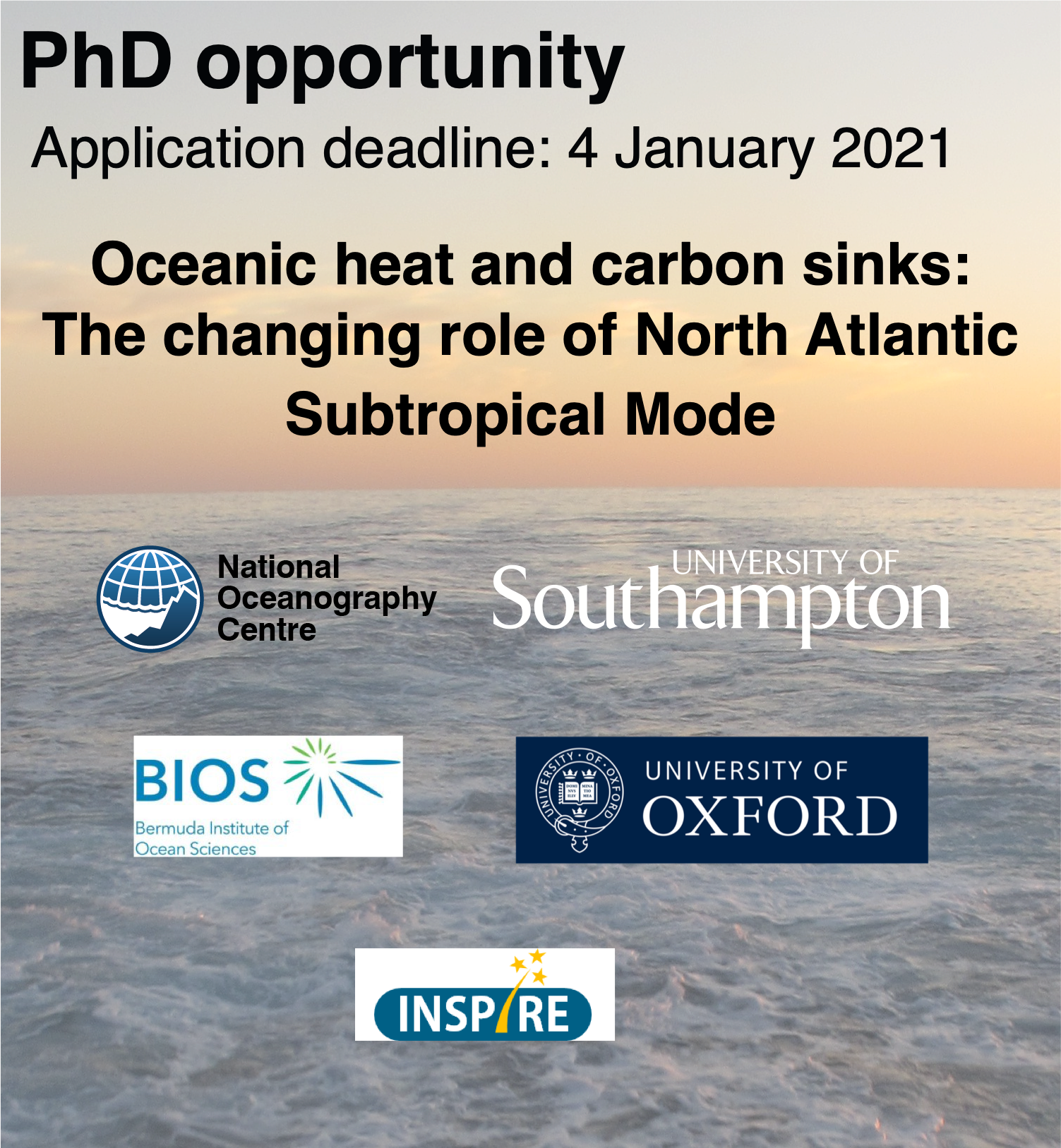
Rationale
In the North Atlantic, Subtropical Mode Water is undergoing dramatic changes, declining in volume by up to 90% during the last decade (Stevens et al., 2020). Subtropical Mode Water and other mode waters in the Southern and Pacific Oceans play an important role in drawing heat and carbon dioxide from the atmosphere into the ocean. Understanding the variability of mode water volume and the processes that control this variability are therefore vitally important if we want to better predict how the global climate system will change into the future.
The focus of this project will be on understanding the interannual variability of North Atlantic Subtropical Mode Water in observational data (Argo, hydrographic sections, Bermuda Atlantic Time-Series Study) and models. The project will utilise and develop novel analytical techniques to separate the drivers of oceanic change incorporating physical and biogeochemical observations, inverse methods (Evans et al., 2017) and machine learning-based tools (Maze et al., 2017). The overarching goal will be to quantify the role of mode waters as a carbon and heat sink and to determine how this sink is changing.
Methodology
Key to understanding any oceanic change is separating diabatic (warming/cooling, freshening/salinification) and adiabatic (advection/heave) changes. In most analytical frameworks, these components of change are very difficult to separate, and may lead to invalid conclusions if misinterpreted. This project will take advantage of recent advances in water mass frameworks, that are used to separate diabatic and adiabatic changes in the ocean. The use of water mass frameworks has led to novel insight into key components of the Southern Ocean overturning circulation and successfully determined the drivers of recent interannual variability in the Atlantic Meridional Overturning Circulation. A water mass framework will be used in conjunction with machine learning-based tools to identify water mass classes and characterise water mass variability. This analysis will incorporate biogeochemical observations, in particular dissolved inorganic carbon, to quantify the heat and carbon budget of North Atlantic Subtropical Mode Water. Observational and model data will be used in a complementary manner, to gain a more comprehensive view of mode water volume and variability. The analysis will provide a benchmark for the representation of Subtropical Mode Water in future climate models.
Training
The INSPIRE DTP programme provides comprehensive personal and professional development training alongside extensive opportunities for students to expand their multi-disciplinary outlook through interactions with a wide network of academic, research and industrial/policy partners. The student will be registered at the University of Southampton and hosted at the National Oceanography Centre Southampton.
Specific training will include:
Programming (Python, Matlab etc.), development of open source software.
Access to, and handling, a variety of observational and model data, including physical- and biogeochemical-based data.
Configuration and operation of ocean models with varying degrees of complexity
Potential to spend time working at the Bermuda Institute of Ocean Sciences and take part in the Bermuda Atlantic Time-Series Study monthly cruises.
Potential to spend time working at the University of Oxford.
Participate in NOCS led hydrographic- and mooring-based cruises
Eligibility & Funding Details
Please check here for details.